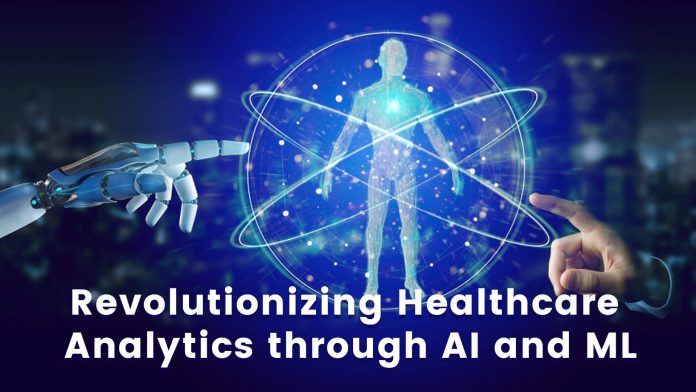AI or Artificial Intelligence as we specifically name it has emerged as the star technology of the last decade. Automated machines, health tracking devices, electronic record keepers, and many more, the healthcare sector is experiencing a dramatic shift with the inception of artificial intelligence. Today, the industry does not lack a significant cure but the tools and technologies that help circumvent diseases. And, Healthcare AI is what the industry needs to implement.
Before we move on to the prospects of artificial intelligence in the healthcare industry, let’s brush up our knowledge on the technology. What is artificial intelligence?
Artificial Intelligence – Need of All
Driving data to provide relevant insights that can then help physicians or the researcher to make decisions. Healthcare AI is all about using pre-fed medical data into computerized algorithms and using this data to gain information about the health of a patient or related to drugs. This helps the concerned person make an effective decision and also, in some cases, predict future happenings.
Scanning Facts
Healthcare AI is the amalgamation of various technologies that allow machines to sense human activities and comprehend the same, turning them adept in healthcare activities. Where the existing technology complements a being, ML for Healthcare Industry can actually augment the everyday task of a human. Nearly all industries worldwide are embracing technology and unleashing the era of the smart cure.
A few facts that support the rise of application of AI and ML for the healthcare industry are:
- According to an analysis done by Accenture, healthcare AI applications have the potential to decrease healthcare spending by $150 million.
- Size of the healthcare market is expected to rise to $6.6 billion by the end of 2021.
- The global market of healthcare driven solely by AI and ML is expected to reach $223.16 billion by 2023.
Figures speak for themselves. The fusion of ML and AI has endless possibilities and this is the reason why industrial giants are actively investing in given technologies.
Impact of Healthcare AI
Today, there exists a multitude of AI-driven applications proven to reduce cost, improved care and further help doctors make efficient decisions rendering optimized experience to patients. The inception of EMRs, wearables, robotic implants, and home monitoring devices also help reduce the rate of readmission.
- Remote Care
One of the most important applications of Healthcare AI is remote care rendered to patients. Wearables and significant AI-driven devices have embedded sensors that monitor patients and keep track of their body temperature, blood pressure, sugar level, etc.
In the event of discrepancies, such devices send alerts to the doctor and can further propose a precautionary measure, preventing the situation from worsening. Tracking the health of a patient remotely further decreases the hospital readmission rates and also saves the patient from unwanted movement.
- Efficient Diagnosis
ML for the healthcare industry has altered ways by which doctors diagnose a patient. ML-driven technology of image recognition helps them map the patient reports with the actual disease and come up with better results.
At times, reports might suggest the presence of a disease but due to the poor image quality, doctors find it hard to assure the prevalence of the same. Here is where the technology of image recognition and corresponding machines outperform the traditional image reception methods.
Computer vision helps the technician to have a refined view of the image and with the help of a deep learning map, the patients report to see if they are a match. This not only assures efficient output but also quickens the process of report generation. It is expected that companies worldwide will invest $1.2 billion annually to integrate AI-driven diagnostic tools to improvise imaging and disease analysis.
- Health Assistants
We thrive in the mobile-first era and there does not exist a single industry that does not use an app. The same is the case with the healthcare industry. With rising technological trends and the advent of mobilization, health experts have introduced their patients to medical apps that manage and track patients’ information.
While the basic apps are meant to simply connect patient with the doctor, variants help patients schedule an appointment, have a conversation with chatbots, get reminder alerts and also suggest when one should visit a doctor. An Alexa-powered app is smart enough to keep track of the patient’s health and under circumstantial data, schedule an appointment with the doctor automatically.
- Improved Medications
ML for the healthcare industry has an added benefit of guiding the pharma industries too. ML-specific applications can assess a patient’s health condition based on their medical history and further recommend medicines to others with a similar health record.
This data is extremely helpful for pharmaceutical companies as it gives them leverage and knowledge of what medicine serves what purpose.
It is anticipated that by 2022, the total spending on drug development using data analytics would reach $1.3 billion. Surveys are conducted to gather patient information, and this is then comprehended by ML applications. Knowing the right medication helps cure a disease better and faster.
- Streamline Operations
Another advantage of Healthcare AI is narrowing down the supply chain operations. Using methods of automated writing and NLP, physicians can cut down the total time taken for paperwork. Such technology is also helpful for pharma companies and Medtech agencies. They can automate the majority of their tasks using modern technologies.
- Monitor Risk
Risk monitoring is an essential aspect of ML for the healthcare industry. It is necessary to keep track of a patient being treated under critical conditions. Even a minor mishap could cost his or her life.
Earlier, doctors & assistants had to manually track the patient and monitor the condition frequently; today, the industry has sensor-based machines. These are intelligent enough to monitor the health condition of a patient. At any point in time, if these sensors detect suspicious changes, they alert the authority at a far more early stage. This keeps doctors updated on the patient’s condition 24/7 and remotely.
- Leverages Patient Engagement
The prevalence of mobile apps that keep track of the medical records of a patient helps them to engage directly with the doctors. Since all information is stored in a single place, they are well aware of their condition and take measures to better it. Such applications further promote direct communication between the patient and the doctor, improving the patient’s experience, and keeping them satisfied.
Closure
Imagine that you have visited a new doctor and he needs to know about your medical history. Gathering papers seems tedious; how about having a medical app stuffed with your health records, medications, allergies, and previous reports? No doubt this is a more seasoned approach and eases not only your efforts but also streamlines the work of a doctor. Accessing all records in the same area helps draft better suggestions, eliminating errors.
Further, knowing that you have a disease at an early stage is always better than being consumed by it and gradually dying. Till today, predicting diseases wasn’t easy, but now with ML for healthcare industry doctors can use data analytics to detect diseases and cure them long before they turn fatal. It’s no wonder that all the digital enthusiasts are proactively investing in the technology and bettering the care rendered to patients.
Find a Home-Based Business to Start-Up >>> Hundreds of Business Listings.

















































